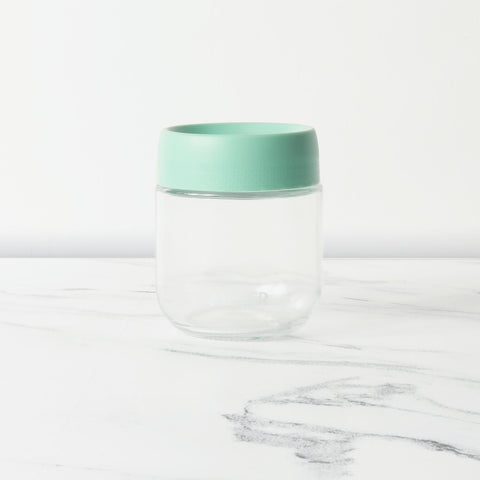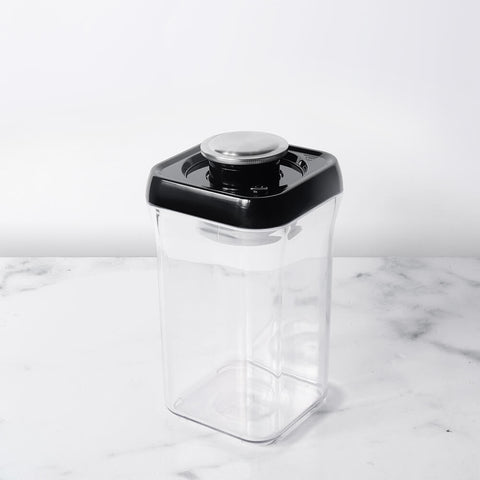







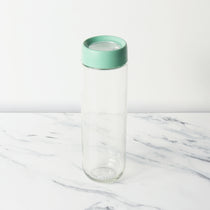
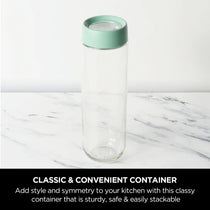
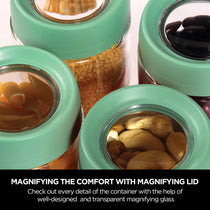
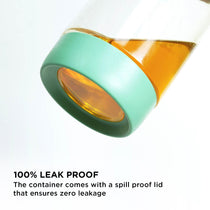
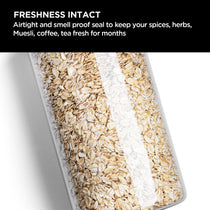

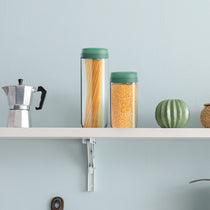
Meyer Glass Storage Jar, 1300ml
Regular price Save ₹ 269 MRP ₹ 1,075.00 Sale price
Inclusive of all taxes
- Lid with Magnifying Glass: The top of the jar features a well-designed transparent magnifying glass to easily identify and observe every detail of the container without unnecessarily opening it.
- 100% Food Grade and Leak Proof: The transparent container is made of high-quality soda lime glass that is BPA free, antibacterial and doesn’t leach any chemicals into your food.
- Freshness intact: Airtight and smell proof seal to keep your spices, herbs, coffee, tea fresh for months. The silicone ring provides the perfect protection against moisture.
- Knurled Grip Lid: The lid comes with an anti-slip grip that facilitates easy opening and closing.
- User-friendly: Microwave Safe (without Lid), Freezer Safe and Dishwasher Safe for all-round and convenient usage.
- Easy to use: Wide mouth jar for easy access; sturdy body that doesn’t break or crack and offer a long-lasting storage solution for your kitchen.
- Easily Stackable: These easy to stack jars have been especially designed to help you make the maximum use of minimum space and keep your kitchen organized.
-
ADDITIONAL INFORMATION
Product Code
48250-CCountry of Origin
ChinaMaterial
Soda Lime GlassProduct Dimensions
Diameter: 8.3cm
Height: 27cm
Weight (Kilograms): 0.62
Capacity (Volume): 1.3LColour
TransparentItem Shape
CylindricalCommon/Generic Name
Meyer Glass Storage Jar, 1300mlSeller/Importer Name
Meyer Housewares India Private Limited
Add: 30, Link Road, Lajpat Nagar-3, New Delhi- 110024Package Contents
1N Glass Container, Use and Care Instructions -
SHIPPING AND DELIVERY
The date of delivery is usually between 3-4 working days. However, this can vary according to the location, climatic conditions and area distress
-
ASK A QUESTION
We are open to your questions. Whether you want to understand more about your cookware, master the technique of cooking, our Supper Team is here to help you! Share your doubt, query or concern!
PRODUCT DESCRIPTION
100% Food Grade and Leak Proof
The transparent container is made of high-quality soda lime glass that is BPA free, antibacterial and doesn’t leach any chemicals into your food.

Easily Stackable
These easy to stack jars have been especially designed to help you make the maximum use of minimum space and keep your kitchen organized.

Lid with Magnifying Glass
The top of the jar features a well-designed transparent magnifying glass to easily identify and observe every detail of the container without unnecessarily opening it.

